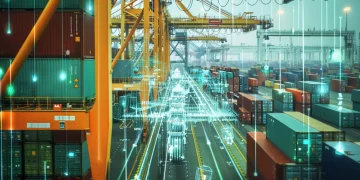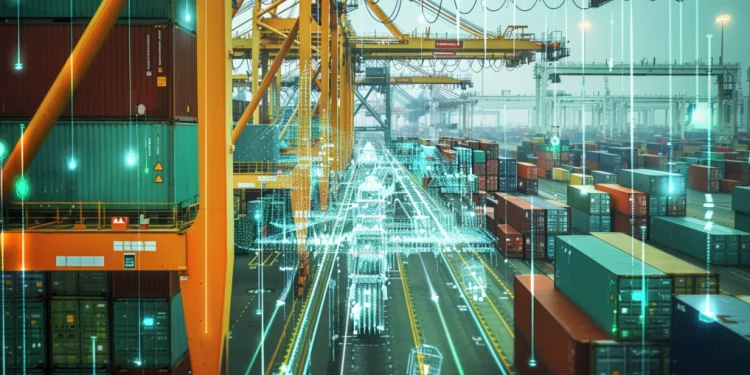The global logistics industry, long known for its complex paper trails and fragmented data, is undergoing a significant transformation with the adoption of blockchain technology. Leading logistics companies are increasingly seeing the potential of blockchain to enhance transparency, streamline processes, and improve overall efficiency across the supply chain.
How Blockchain is Revolutionizing Logistics:
- Enhanced Transparency: Blockchain creates a secure, tamper-proof record of every step a shipment takes, from origin to destination. This allows all stakeholders involved – shippers, carriers, customs officials, and even consumers – to track the movement of goods in real-time with greater transparency.
- Improved Efficiency: By eliminating the need for manual data verification and reconciliation across multiple platforms, blockchain can significantly streamline processes and reduce administrative burdens. This can lead to faster turnaround times, reduced errors, and lower operational costs.
- Increased Security: The inherent security features of blockchain make it virtually impossible to tamper with data, minimizing the risk of fraud and counterfeit goods entering the supply chain.
Examples of Adoption:
Several major logistics companies are already piloting blockchain-based solutions:
- Maersk: The world’s largest container shipping company is using blockchain to track shipments and simplify customs clearance processes.
- Walmart: The retail giant is leveraging blockchain to improve food traceability and ensure the safety and quality of its products.
- DHL: The international logistics provider is exploring blockchain to improve transparency and efficiency in its global supply chain network.
Challenges and Considerations:
While the potential benefits of blockchain are significant, challenges remain:
- Standardization: The lack of standardized protocols across the industry can hinder interoperability between different blockchain platforms.
- Scalability: Scaling blockchain solutions to accommodate the massive volume of transactions in the global logistics industry requires further development.
- Regulation: The evolving regulatory landscape surrounding blockchain technology creates some uncertainty for businesses considering its implementation.
Looking Ahead:
Despite the challenges, the adoption of blockchain technology in global logistics is expected to accelerate in the coming years. As industry standards are established, scalability improves, and regulatory frameworks become clearer, blockchain has the potential to revolutionize the way we manage and track goods around the world. This will lead to a more transparent, efficient, and secure global supply chain, benefiting all stakeholders involved.























